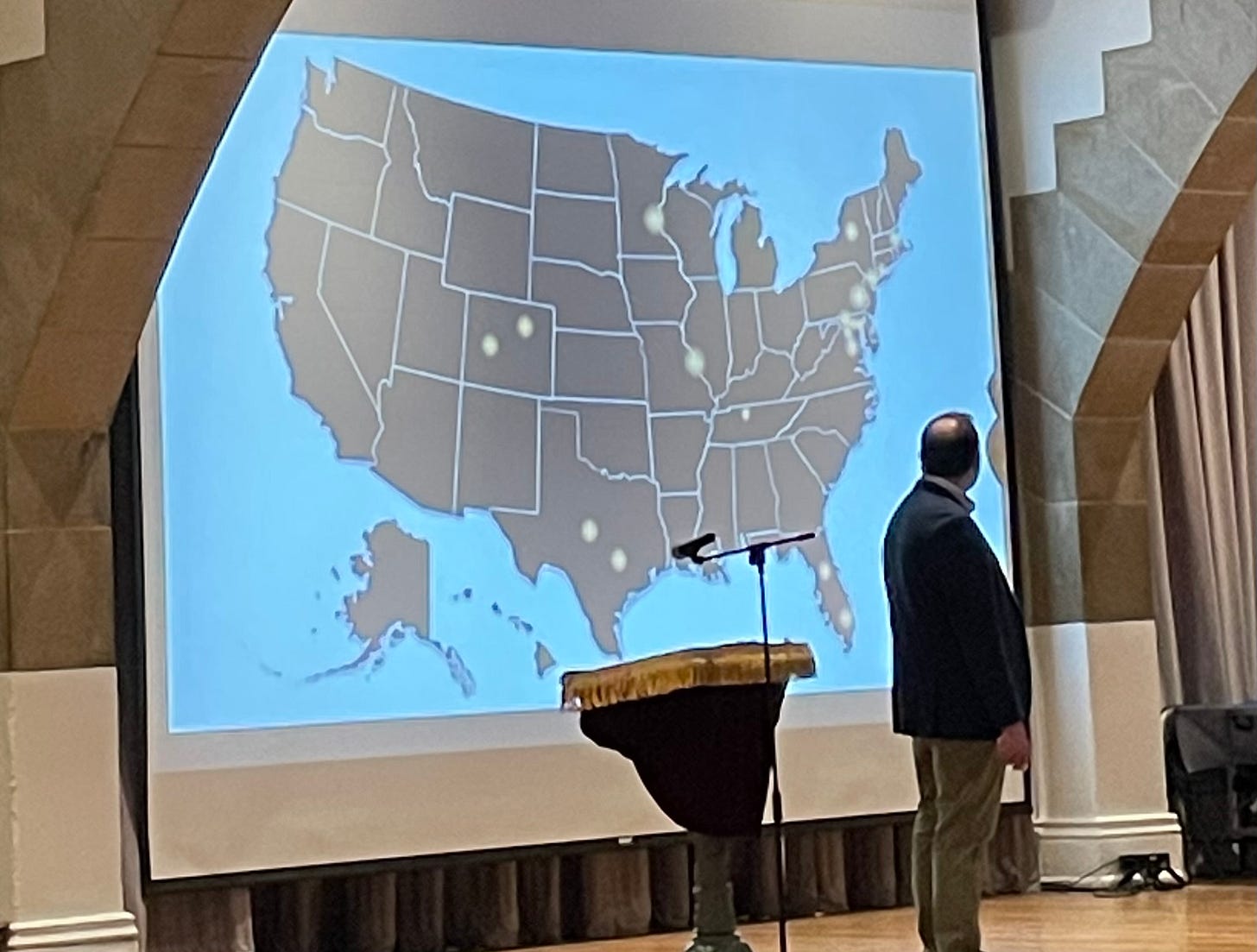How Kansas built their own LETRS-like training for math
First of a four-part series on improving math achievement
I keep reading how AI is going to put me out of a job–and I refuse to believe that. This handmade, artisanal newsletter is 100% my own ideas, reporting and writing. There’s a thinking human being behind everything happening at The Bell Ringer, and always will be. Thank you for supporting this original work and helping make this happen!
researchED NYC: The movement toward evidence-based teaching and learning is growing
I had a great time and learned a lot at my first researchEd conference last weekend in New York City. After a weekend of talking with leaders and educators, I’m here to report that the movement is growing. Here’s a photo of Jim Heal, co-author of How Teaching Happens, in his keynote with Meg Lee, showing the audience the “bright spots” where schools and districts are working on science of learning-based reforms. (Look at that light in Nashville, Tennessee, where I live: more on this coming soon.) Let’s check back next year to see if these dots of light are getting bigger and brighter.
Looking for math ‘Tools for Practice’
The Tools for Practice toolkit, where teachers share their science of learning techniques and what they look like in their classroom, is growing. Check out the list here.
I’m looking for teachers who want to share their evidence-based math practices—if you’ve got something that’s working and want to share, please reach out!
Raising the Bar, Part 1: How Kansas built their own LETRS-like training for math
This is the first post of a four-part series on what it will take to improve math achievement in the U.S.. Over the past decade, there have been “sharp, steep declines” in math achievement for U.S. students on both national and international tests. On the 2023 TIMMS international assessment, according to reporting by Sarah Schwartz at Education Week, “American 4th graders’ scores fell 18 points after 2019, while 8th graders’ scores fell by 27 points—the biggest drop since the United States began participating in the test in 1995.”
Students had a small bounceback from pandemic losses on the U.S.-based NAEP test administered last year, barely a blip in a decade-long overall score decline.
What is it going to take to get students back on track in math? Do schools need a ‘science of reading’ overhaul to instruction, policy, and curriculum in math as well? Or do the different needs of what it takes to succeed in math mean an altogether different approach?
Today’s story, the first, looks at whether teachers are getting the kind of adequate training to help all students learn math. Enter the Kansas Math Project (KMP), which created their own teacher training to help teachers deeply understand math content, but also learn the evidence-informed ways to teach it to all students. The professional development resembles the LETRS training, or Language Essentials for Teachers of Reading and Spelling, that has been an essential part of the national science of reading overhaul. The KMP has made both the online and in-person math training free and available to anyone inside and outside of Kansas. To find out more information, visit their homepage, or sign up here for access to all their training.
I’ve written about Kansas math reforms before—KMP is part of a larger, state-wide effort to improve learning across the state in reading and math that also includes a highly organized framework of teaching, assessment and ongoing support for struggling students.
Back in February, I reported that some experts and leaders told me they were not seeing the same appetite for a LETRS-like comprehensive math training for teachers—even as it’s recognized that this evidence-based training is badly needed.





